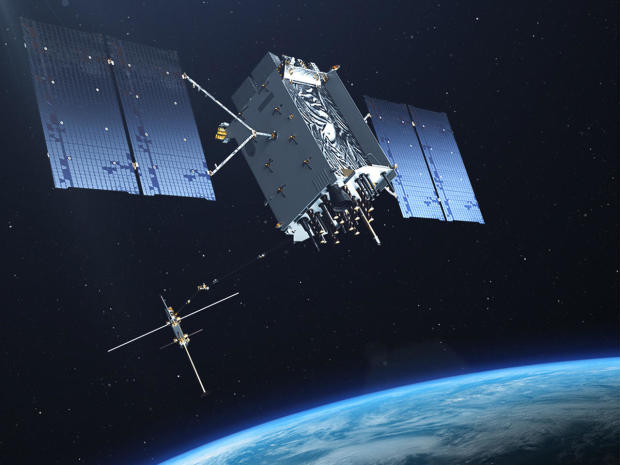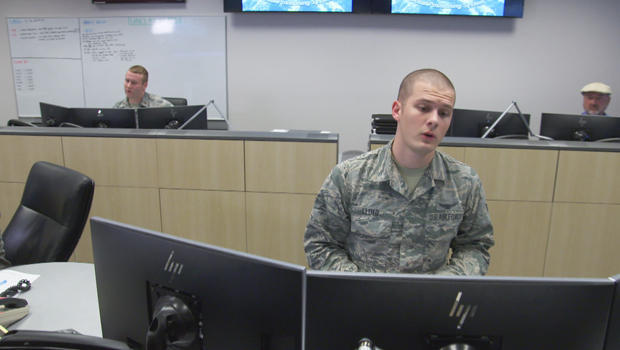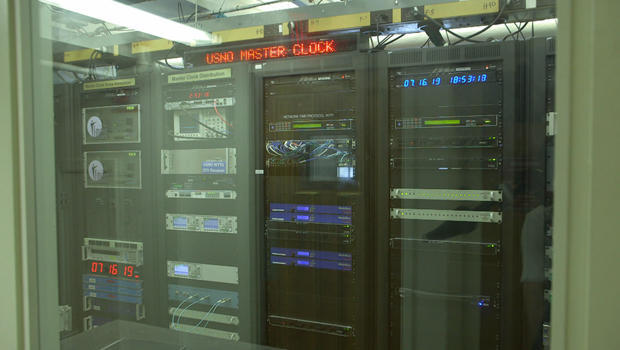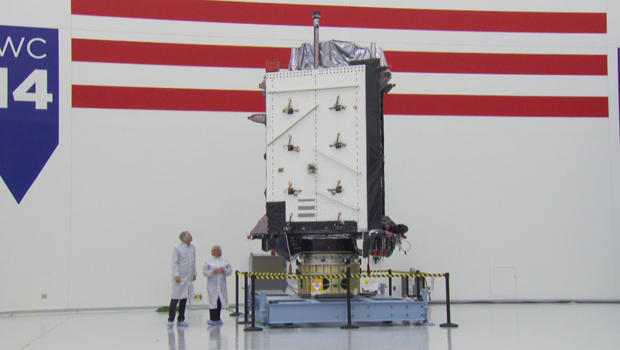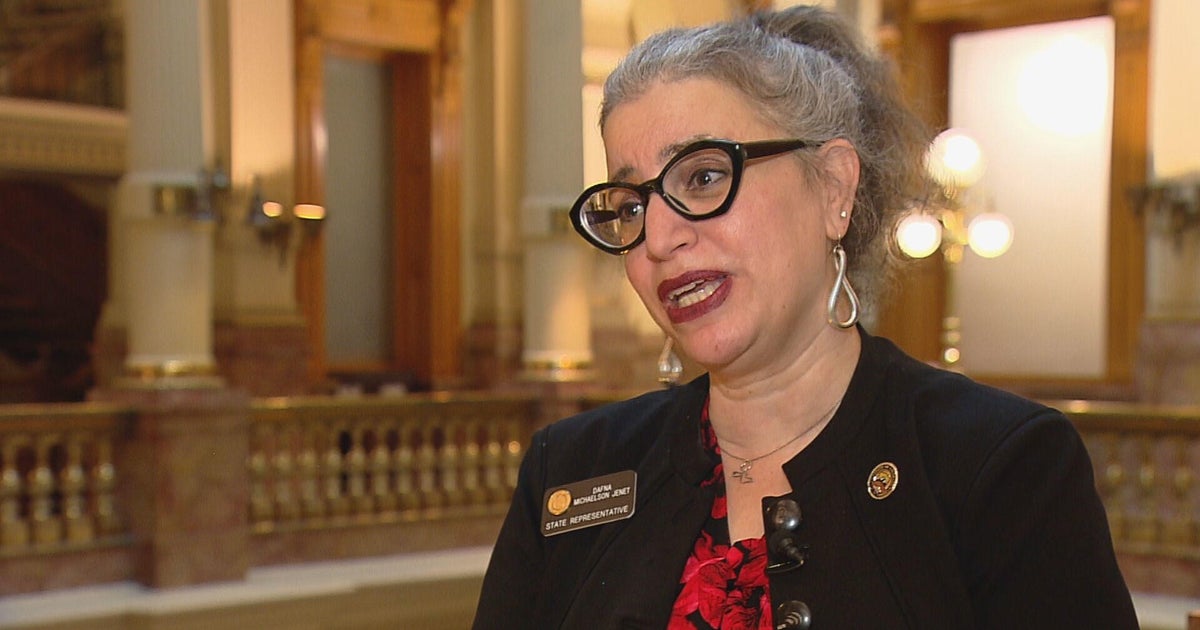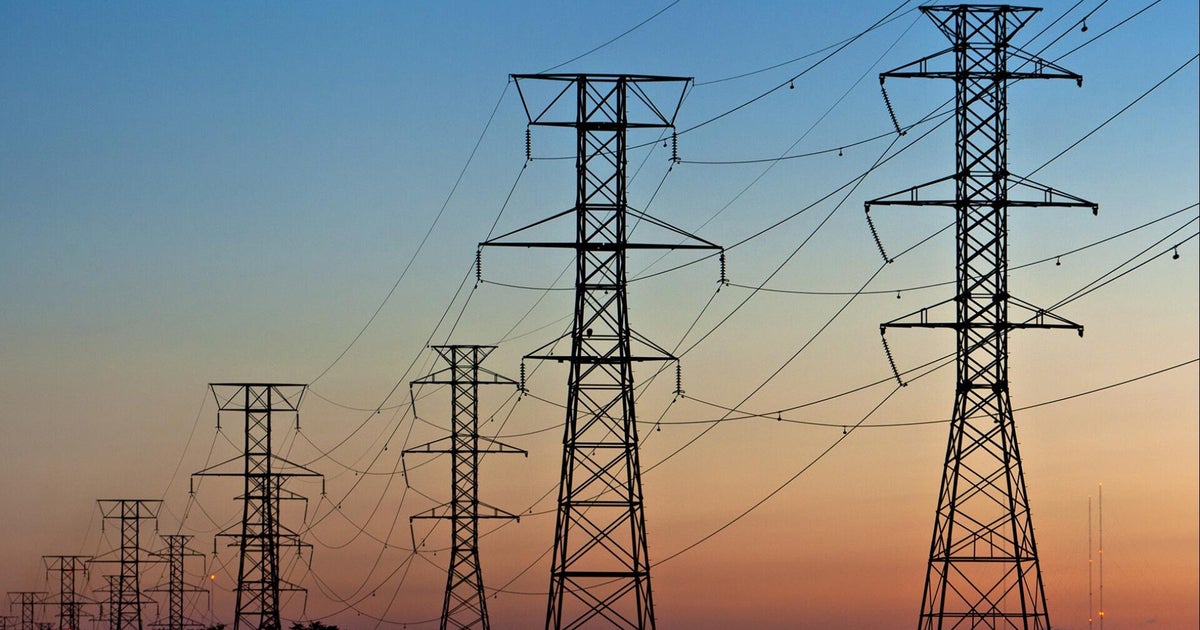Preparing the next generation of GPS
Thanks to GPS, your car, your phone, even your watch knows exactly where you are on the planet, by listening to a satellite signal from 12,000 miles over your head. GPS is always on, you don't pay anything to use it, and you never need to know how it works.
But don't you kind of wonder?
The U.S. Air Force runs the American Global Positioning System. "We're very proud of it. We enjoy providing that utility to the planet, on behalf of the United States Air Force, for free!" laughed Brigadier General DeAnna Burt, who oversees GPS as the director of operations at Air Force Space Command at Peterson Air Force Base in Colorado Springs.
While man y people think of GPS as "that navigation thing on my phone," it is much more: "Think about your ATMs, at the gas pump, the New York Stock Exchange, the internet, your power grids – they need a timing standard, to link it up around the world," said Gen. Burt.
The GPS system deploys a constellation of 31 satellites, each beaming a one-way radio signal towards Earth. "Those signals are being broadcast continuously," said Gen. Burt. "And when you're in view of that satellite, your receiver will pick the four best satellites in view. You want one directly overhead and three on the horizon – that gives you the best position."
Of course, those critical satellites don't fly themselves. At Schriever Air Force Base in Colorado Springs, a team of young technicians mans the GPS Master Control Station 24 hours a day, watching over the satellites. The commands they send can adjust the satellites' positions or check their health.
Correspondent David Pogue asked, "Is there ever trouble?"
"I was on duty as a crew commander a couple of years ago," said the operations flight commander, Captain Josh Harnish, "when we had a satellite and it turned out that the satellite's antenna was just hard broken."
"Do you have a spare?"
"We actually have about four on-orbit spares, because you can't just send a fix-it man up to space," Captain Harnish said.
The oldest active GPS satellite is about 26 years old now – older than some of the technicians controlling them. The operators, he said, "go through a very rigorous training program, and then any time we talk to the satellites, two people have to actually look and approve what's going to that satellite."
"So, one person couldn't go rogue?"
"That's correct. There is no self-destruct command, let's just put that to rest!"
It's nice to know that such an incredibly important system is in good hands, and absolutely, positively safe. Right?
When Pogue asked if there were a way an enemy of our country could take out the whole system, Dana Goward, president of the Resilient Navigation Timing Foundation (a group dedicated to protecting GPS), replied, "Oh, absolutely. And they wouldn't necessarily have to attack the satellites. It's much easier to attack the signals. GPS is so integrated into all of our systems that any significant disruption would be catastrophic, almost an existential threat."
Originally, the GPS network was developed for one primary customer: the U.S. military, whose need for battlefield coordination was imperative: "The mandate was to put five bombs in the same hole," Goward said. "About ten years after GPS was deployed, some people in the military were astonished to find out that it was being used by civilians at all."
The GPS system as we now know it became operational in 1995. "Today, only a tiny fraction of people that use GPS have anything to do with the military," Goward said. "Mostly, it's the underpinnings of our networked, technological world."
But how vulnerable is the system?
Pogue asked, "So, if you and I were writing a screenplay about North Korean bad guys, would it be plausible to think of a scenario where they could bring down the whole system?"
"Yes, it could happen," Goward said. "A suitcase-size GPS jammer, for instance, could have a massive impact on a major metropolitan area, especially if it was located on an aerial platform."
Jamming means drowning out the GPS signal here on Earth. If you're an evil-doer, you don't have to build some expensive rocket to blow up our satellites; you can just broadcast so much radio gibberish that nearby receivers can't hear the satellites.
General Burt says she's well aware of the threat. The two major concerns she has are jamming and cyber intrusion. And to fight against those threats, the next generation of satellites, GPS III, are being built and deployed. "GPS III will be three times more accurate, and have eight times more jam resistance," she said.
GPS III satellites are being built by Lockheed Martin. Pogue – part of the first network camera crew ever allowed inside the Lockheed Martin factory – donned protective garb to enter the facility's clean room, where air is changed out at least 10 times per hour.
Even a speck of dust could damage the satellite once it's in space. "Think about a fleck of foil that might be attached to your clothes, and it gets into the spacecraft? [It] could actually short out some of our electronics," said Tonya Ladwig, who is in charge of the GPS III program at Lockheed.
Two of the new GPS III satellites are already in space; the next six are in this room, in various stages of construction. Each one is built by hand, and takes 18 months to complete.
"So, this time next year, my phone will be talking to this?" said Pogue.
"Yes, your phone will be talking to this satellite," Ladwig replied.
"That is really freaky!"
By 2034, our entire constellation of GPS satellites will be GPS III models, which are more secure against jamming and cyberattacks.
Even so, GPS watchdog Dana Goward would like to see a backup system on the ground, too. "Users will essentially be bulletproof to any kinds of disruption if they're using both systems," he said, calling the ground-based system complementary.
In the meantime, Brigadier General DeAnna Burt says she intends to keep right on worrying about protecting our GPS.
"My job is to make sure you don't have to worry," she laughed. "But I do think we need to be aware, as a nation, that there are threats, and there are people wanting to threaten our way of life. And we have to be prepared when they come."
For more info:
- GPS: The Global Positioning System
- Resilient Navigation Timing Foundation
- U.S. Naval Observatory, Washington, D.C.
- GPS III at Lockheed Martin
Story produced by Amol Mhatre.
